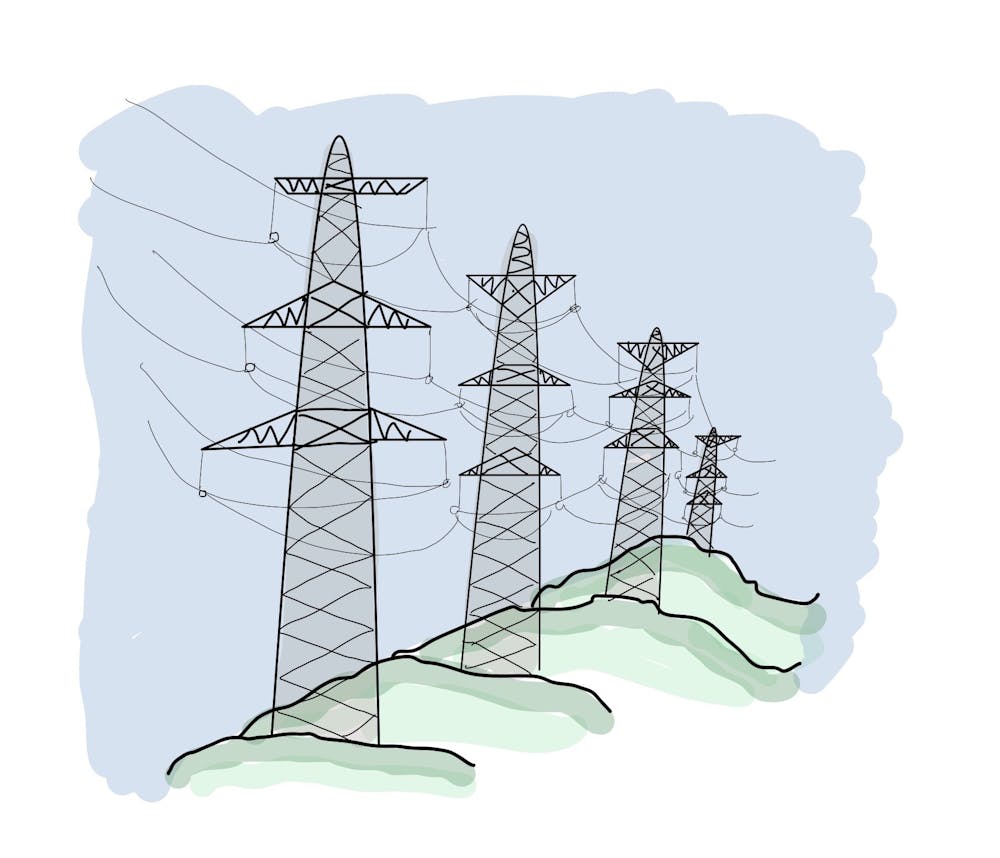Following a public comment session on Sept. 23, the Rhode Island Public Utilities Commission approved a 47% increase in residential electricity bills proposed by Rhode Island Energy for this winter.
The rate increase, which will also affect business’s bills, went into effect October 1. Residents and activists in Rhode Island have criticized the change, arguing it unfairly harms low-income residents.
According to Ted Kresse, communications manager at RI Energy, the price increases are mostly due to market factors, such as elevated gas prices resulting from the war in Ukraine and higher regional demand.
In February, the Division of Public Utilities and Carriers approved the sale of RI Energy, formerly known as Narragansett Electric Company, from National Grid to PPL, The Herald previously reported. RI Attorney General Peter Neronha appealed the sale, resulting in an agreement with PPL which froze rates for energy distribution for three years and allocated $200 million in direct payment relief for consumers, according to a statement from the RI Attorney General’s office.
The sale had little effect on the recent price increases, according to Kresse.
During the Sept. 23 hearing, the commission ruled on a number of measures to mitigate the impact of the rate increase, such as the use of $3.8 million in cap-and-trade funds to partially offset costs for low-income customers, Todd Bianco, chief economic and policy analyst for the RI Public Utilities Commission, told The Herald.
The commission also approved a deferral program — which allows customers to delay paying a monthly $6 fee over the winter — and the use of $32 million in credits for customers, which came as a result of a settlement between Neronha and PPL, Bianco said.
“We have effectively eliminated the impact for our most vulnerable constituents, and they will not see an increase in their overall electric bills when compared to last winter,” Governor Dan McKee said in a statement.
Based on average use, a residential customer paying the new rate will see an increase of around $52 a month on their electricity bill, according to PPL. But with relief measures, the “average” low-income ratepayers will actually be paying slightly less than last winter, according to Bianco.
Despite relief programs, some politicians and activists are still concerned about the coverage of the energy relief programs.
“Working class families are told that they make too much in order to qualify for low-income subsidy energy programs,” state Representative David Morales MPA’19 said. “We’re going to see working- and middle-class families and households end up in severe utility debt that will carry on with them for the next years to come.”
“If you’re … the majority of working class people in the state, you’re still going to be impacted,” said Camilo Viveiros, executive director at the George Wiley Center, a nonprofit which advocates for equitable utility access.
Advocates and residents also voiced frustration over the commission's decision to approve the price hike, arguing that the energy company should have taken the brunt of the costs from rising energy prices.
“People are already struggling desperately around utility costs.” Viveiros said. “If the rate increase was rejected, that (relief) money could have had a longer term impact.”
“There hasn’t been much of an appetite from the Public Utilities Commission to demand that our public utility companies do more to serve Rhode Islanders,” Morales added.
The hearing solely focused on whether RI Energy acquired their energy as planned and calculated appropriate rate estimates, Bianco said, leaving the PUC’s hands tied. On both counts, the commission determined that the company did its job correctly, he said.
“If someone were to make a case that the plan wasn’t followed, that's one thing, (but) that didn’t happen here,” Bianco said. “The commission works hard to balance the interests of Rhode Islanders.” RI Energy is legally prevented from making a profit off of their energy supply, he added.
Terri Wright, a housing organizer with Direct Action for Rights and Equality, said that DARE is organizing a clinic to help people sign up for programs, such as the federal Low Income Home Energy Assistance Program, in order to soften the blow of the price increase.
“Hopefully this energy assistance comes in handy for families that need it. I know there are a few folks out there who only wish that they qualified for this program because the increase is going to eat up a lot of funds,” she said.
Wright said she’s used an oven to “push the heat around” during past winters and is pessimistic about the increase, regardless of the relief measures. She said she’s worried about the “domino effect” the price hike will have on families that already have many other essentials to pay for, “making life a little more harsh.”
Morales said that he would like to see a more systemic overhaul of the energy distribution payment system.
“It’s also long overdue that we finally pass a percentage of income payment plan,” Morales said. Under such a program, customers would pay a certain percentage of their income for their energy bill, regardless of how much they use. Similar plans have been implemented in other states, such as Pennsylvania, New Hampshire and Maine.
Electricity rates will likely decrease again in the summer as the demand for natural gas wanes in the warmer months, according to Kresse. But he warned that even next summer’s rates will likely be pricier than in previous years, and “next winter’s rates could also be on the higher end.”

Jacob Smollen is a Metro editor covering city and state politics and co-editor of the Bruno Brief. He is a junior from Philadelphia studying International and Public Affairs.





